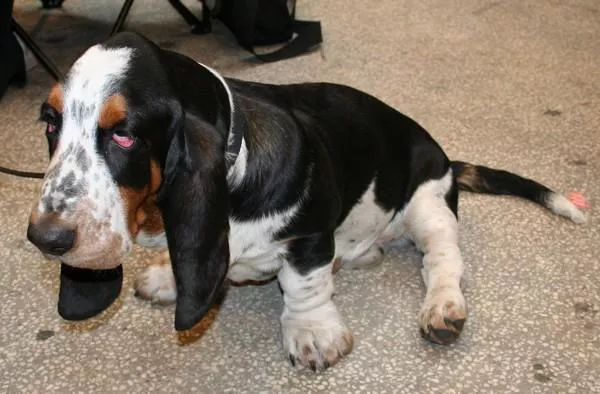Introduction
Basset Hounds are beloved companion animals known for their droopy ears, gentle temperament, and undeniable charm. As responsible pet owners, it is crucial to provide them with a well-balanced diet to ensure their overall health and well-being. Among the many questions that arise when considering their dietary needs is whether Basset Hounds can safely consume dairy products. This article aims to delve into the world of Basset Hound nutrition and examine the potential effects of dairy consumption on their health. By understanding the unique characteristics of Basset Hounds and the properties of dairy, we can make informed decisions regarding their dietary choices.
Understanding Basset Hound Nutritional Requirements
Before discussing the impact of dairy on Basset Hounds, it is essential to understand their nutritional needs. Basset Hounds, like all dogs, require a balanced diet that provides the necessary nutrients for growth, maintenance, and overall health. The primary components of a dog‘s diet include protein, fats, carbohydrates, vitamins, minerals, and water. It is important to note that Basset Hounds, due to their body structure and metabolism, may have specific dietary considerations compared to other breeds.
Potential Benefits of Dairy Consumption
Dairy products are known for their high calcium content, which plays a vital role in maintaining bone health. Calcium is necessary for proper skeletal development, particularly in growing Basset Hound puppies. Additionally, dairy products may provide protein, essential fatty acids, and various vitamins and minerals that contribute to a well-rounded diet.
However, it is crucial to approach dairy consumption with caution, as Basset Hounds can have varying levels of tolerance and sensitivity to dairy products. Factors such as lactose intolerance, individual allergies, and underlying health conditions can influence how well Basset Hounds tolerate and benefit from dairy.
Lactose Intolerance in Basset Hounds
Lactose intolerance is a common condition in both humans and canines. It occurs when the body lacks an enzyme called lactase, which is responsible for breaking down lactose, the sugar found in milk and dairy products. When lactose cannot be properly digested, it can lead to gastrointestinal upset, including symptoms such as diarrhea, vomiting, and abdominal discomfort.
Basset Hounds, like many other dog breeds, can be lactose intolerant to varying degrees. While some Basset Hounds may exhibit no adverse reactions to consuming dairy products, others may experience gastrointestinal distress. It is important for pet owners to observe their Basset Hound’s response to dairy and consult with a veterinarian if any negative symptoms occur.
Allergies to Dairy in Basset Hounds
In addition to lactose intolerance, Basset Hounds can also develop allergies to dairy products. An allergy is an immune system response to certain proteins present in dairy, such as casein or whey. When a Basset Hound is allergic to dairy, consuming these proteins can trigger an allergic reaction. Common symptoms of dairy allergies in dogs include itching, skin rashes, ear infections, gastrointestinal upset, and respiratory issues.
If a Basset Hound displays signs of an allergic reaction after consuming dairy, it is crucial to eliminate these products from their diet and consult with a veterinarian. Allergies can be managed through dietary changes and appropriate medical interventions to ensure the dog’s well-being.
Assessing Individual Tolerance and Sensitivity
While lactose intolerance and dairy allergies are common concerns, it is worth noting that individual Basset Hounds may have varying levels of tolerance and sensitivity to dairy. Some Basset Hounds may tolerate small amounts of dairy without any issues, while others may experience adverse reactions even to trace amounts. Each dog is unique, and it is essential to pay attention to their individual responses and consult with a veterinarian for personalized dietary recommendations.
Safe Dairy Options for Basset Hounds
If a Basset Hound shows no signs of lactose intolerance or allergies, and dairy is included in their diet, it is crucial to choose safe options that provide maximum benefits while minimizing potential risks. Here are some dairy products that may be safer for Basset Hounds:
Plain Yogurt: Plain, unsweetened yogurt that does not contain any artificial sweeteners or additives can be a good source of probiotics and calcium. Probiotics can contribute to a healthy gut and improve digestion. However, it is essential to start with small amounts and monitor the Basset Hound’s response.
Cottage Cheese: Cottage cheese is another dairy product that can be relatively safe for Basset Hounds. It is a good source of protein and calcium. Like yogurt, it is important to introduce cottage cheese gradually and monitor for any adverse reactions.
Hard Cheeses: Some hard cheeses, such as cheddar or Swiss, have lower lactose content compared to other dairy products. These cheeses can be provided in moderation as occasional treats, but pet owners should be cautious of the high-fat content, which may lead to weight gain if overfed.
Conclusion
In conclusion, Basset Hounds can consume dairy products, but caution must be exercised due to potential lactose intolerance, allergies, and individual sensitivities. While some Basset Hounds may tolerate small amounts of dairy without any issues, others may experience gastrointestinal distress or allergic reactions. As responsible pet owners, it is essential to observe the Basset Hound’s individual response and consult with a veterinarian for guidance on their dietary needs.
If including dairy in a Basset Hound’s diet, it is advisable to choose safe options such as plain yogurt, cottage cheese, or hard cheeses in moderation. It is important to select dairy products that do not contain artificial additives or sweeteners and to introduce them gradually while monitoring for any adverse reactions.
Remember, every Basset Hound is unique, and their dietary needs may vary. Consulting with a veterinarian who is familiar with the individual dog’s health history is crucial in making informed decisions about their diet. By prioritizing the Basset Hound’s well-being and considering their specific nutritional requirements, we can ensure their optimal health and happiness.


